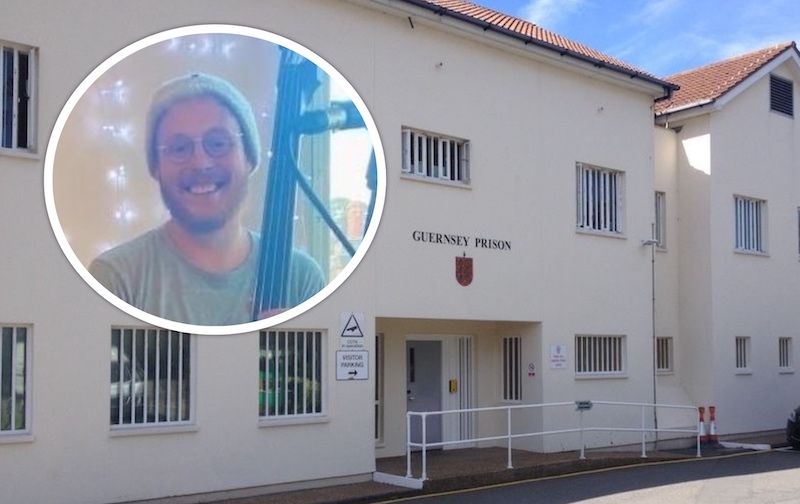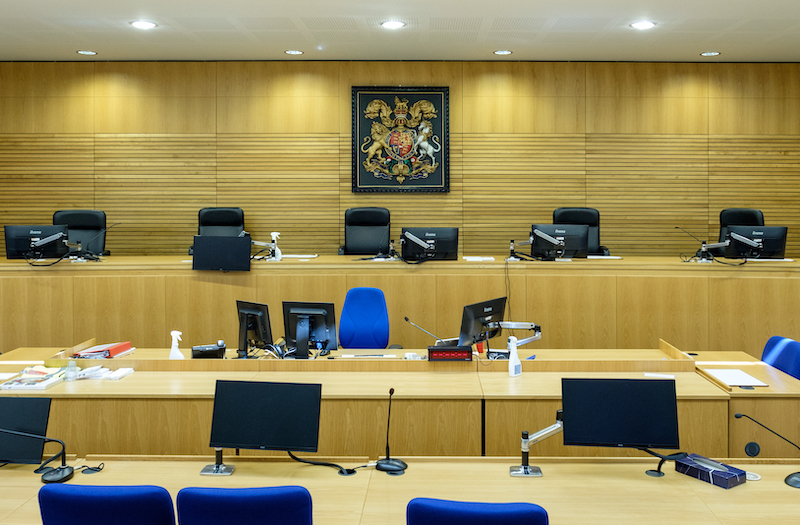


Treating drug dependency as a health issue rather than a criminal offence would be "a huge step forward" for the island, says Guernsey's former Chief Minister, as an imprisoned Paediatric Nurse appeals against his two-and-a-half year sentence for importing 3g of coke.
Pip Orchard is appealing his sentence in September before the Court of Appeal in a test case with two others.
Pip, 30, was sentenced in December 2020 to 30 months in prison for importing 3g of cocaine for his personal use, and six months for dangerous driving, in which he led officers on a car chase up Le Val de Terres while drunk.There were concurrent six month sentences for two separate importations of 15 Class C alprazolam tablets.
He is being represented by Advocate Sam Steel, who will challenge the ‘Richards’ guidelines against which sentencing decisions are made for drug importation and supply.
Express has explored and explained those guidelines HERE.
“Our Judges and Jurats have an unenviable task because our sentencing guidelines for drug importations are notoriously severe,” said Advocate Steel.
“Personal use will not generally result in a lighter sentence. I understand why Pip’s many supporters want the guidelines reviewed."
The Richards Guidelines instruct that personal use should "not generally result in a lighter sentence" as all drugs, no matter how small the quantity, "add to the stock in the island".

Pictured: Pip was sentenced in Guernsey's Royal Court and will have that judgment reviewed by the Court of Appeal.
Advocate Steel continued: “Such a review could take evidence from a range of NGO’s [non-governmental organisations], the experience of other jurisdictions, current data regarding seizures, arrests and the impact of custodial sentences on the offender and rates of reoffending, and public opinion too.”
Pip’s father, Tom, said he was “deeply grateful” for the support his family has received from the public in coming to terms with the trauma his son has experienced.
He has pleaded for his son's drug sentence to be replaced with a community sentence with proper mental health support and rehabilitation. He set up a petition against his son's sentence, which now has over 6,000 signatures.
“Pip’s case is complex and presents difficult issues. It challenges us on many levels.
"It has challenged me as a parent dealing with his deep personal trauma; it challenges the draconian sentencing guidelines to become more flexible and humane and offer more considerate punishments; it challenges the political life of the island to make realistic changes to our laws, and to provide sufficient funding for mental health and probationary services.”
Moved by Tom's appeal and the number of signatories to his petition, Deputy Gavin St. Pier decided to visit Pip at Les Nicolles Prison.
Pictured: Deputy St. Pier believes the £50k or so a year it costs to keep a prisoner in jail - which takes an individual away from productive employment and their support network - should only be done if there is no better alternative to punish and rehabilitate the individual.
The former Chief Minister said he “does not condone what Pip did”, which was a breach of the current drug laws. Neither, he stressed, is he critical of the judiciary.
"They have a difficult job, acting without fear or favour, to apply a sentence provided for by the law. They are human and will not get it right every time.
"That is why there is an appeals process. Whether that’s the case with Pip, will be determined when his appeal is heard. It is the politicians’ jobs, as policy and law makers, to determine what is or is not a crime and if it is, what the penalty regime should be."
Pip's backstory is striking, as a nurse who provided relief work abroad, treating refugees and, on occasions, having to pull dead bodies out of the water.
His case, however, is far from unusual, says Deputy St. Pier.
"His alcohol and drug dependency may have begun following his unique traumatic experiences as a paediatric nurse in the refugee camps in Greece, but many others will have experienced their own unique traumas, including adverse childhood experiences such as abuse or bereavement, which led them down a similar path," said Deputy St. Pier.
"Recognising this and treating them as health-related issues rather than simply criminal justice cases will be a huge step forward.
"Prison of course plays an important role in any criminal justice system. But the time has come for a grown-up conversation about what we are trying to achieve with imprisoning the many cases such as Pip’s and whether alternative sentencing would actually be better for the community as well as the individual."

Pictured: In July 2021, the Committee for Health & Social Care published the Combined Substance Use Strategy. It provides a health-led approach to preventing and reducing the harm from the misuse of substances, including prescription drugs, tobacco and alcohol.
He says debate is needed about the difference in sentencing between convictions for personal possession, and those for importation for personal use.
"Quite apart from the £50k or so a year it costs to keep a prisoner in jail, taking an individual away from productive employment (as happened to Pip) and other networks, such as friends and family, which ironically form part a vital part of any prisoner’s post-prison release rehabilitation programme, should be only be done if there is no better alternative to punish and rehabilitate the individual. I hope my visiting Pip in prison helps contribute to that grown-up conversation."
Pictured top: Pip Orchard is currently serving a three-year prison sentence (Credit: Thomas Orchard).
Comments
Comments on this story express the views of the commentator only, not Bailiwick Publishing. We are unable to guarantee the accuracy of any of those comments.